Our community grows alongside our first Miyawaki forest!
In September of 2021, we planted our first Miyawaki forest – the first in the Northeastern U.S. – in Cambridge, Massachusetts. As the forest turns two, and demonstrates signs of resilient, abundant growth, the Bio4Climate team gathered with local forest enthusiasts to reflect and celebrate the ecosystem restoration happening in real time.
Bio4Climate’s staff scientist Jim Laurie welcomed newcomers with his lovely openness and a raft of books laid out on the table, ready and eager to discuss any issue that might be raised while sharing so many of his intelligent, deep insights. Assistant Director of Regenerative Projects, Maya Dutta, shared her reflections and history of our ecosystem restoration efforts and understanding of the larger aspects of the Miyawaki method and its special and unique characteristics.

Reading about the growth of these forests is one thing, but it’s truly a remarkable experience to visit and witness the young ecosystem for yourself. This was the case for students of Jim Laurie’s Biodiversity Deep Dive classes. Having read Hannah Lewis’s Mini Forest Revolution, and had discussion groups with both Hannah and Maya on the Miyawaki method, students were eager to organize a field trip and see for themselves what a community of trees, fungi, microbes, and people can accomplish in just a couple of short years.
In the Danehy Park Miyawaki Forest, we found that many eventual climax trees are already over 10 feet tall with skinny trunks but large leaves to catch a lot of sun. We saw sycamore, cottonwood, hickory, quaking aspen, oak and more reaching for the sky. Lower down were many fruiting rosehips and elderberries. We also witnessed visiting creatures including crickets and birds.
From Paul Barringer, a Bio4Climate community member:
It was such an inspiring experience being at the Miyawaki Forest meeting with many of the Bio4Climate staff. It reaffirmed for me that there are nature-based solutions already happening through the work of positive-minded people right here in Cambridge & Boston. I wrote a poem about this as gratitude for being part of the gathering and celebration.
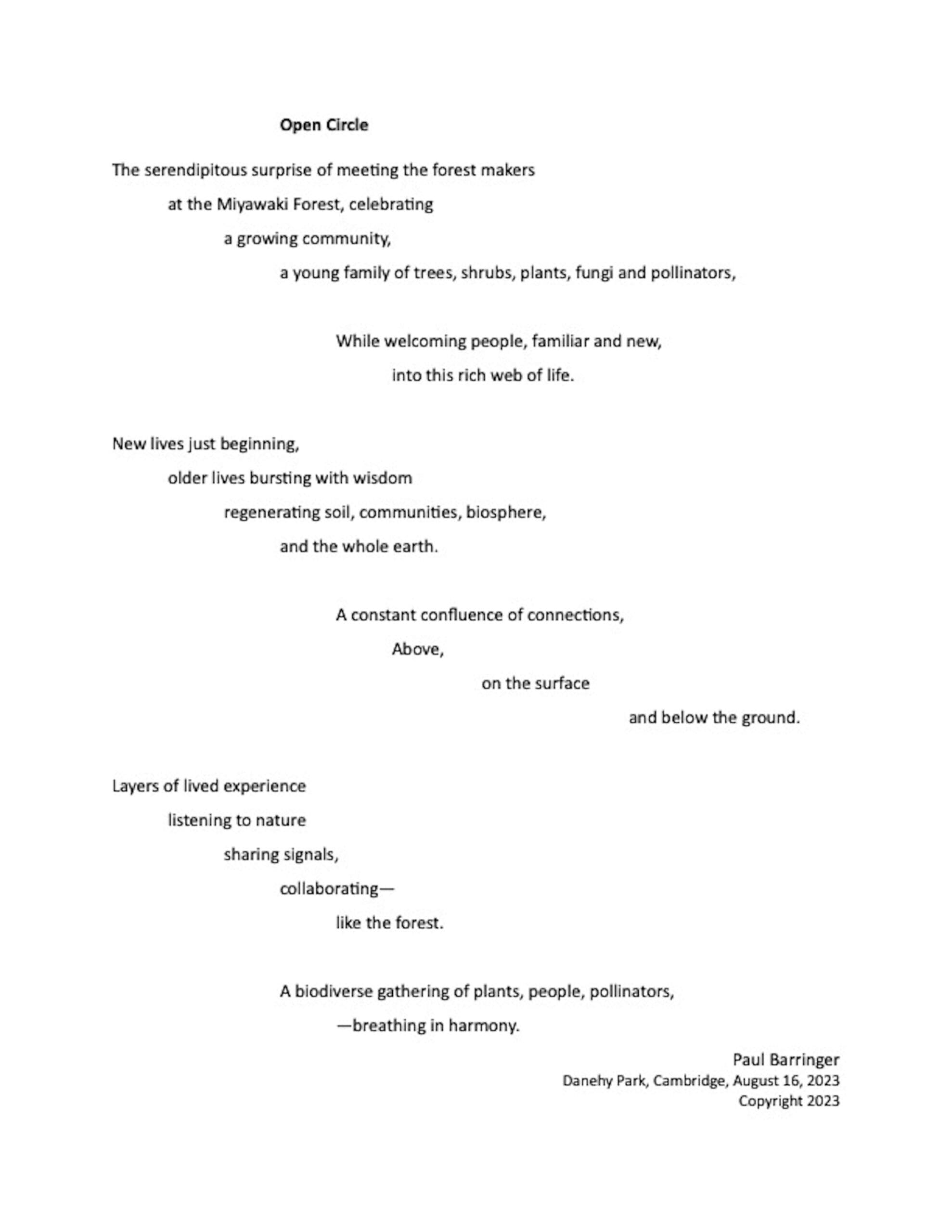
We are so grateful for Paul’s poetic expression of his gratitude. Thank you for sharing and spreading the inspiration!
We welcome others to join in sharing their experience, in the comments below or by email, and to share photos of the gathering or of the mini-forest.

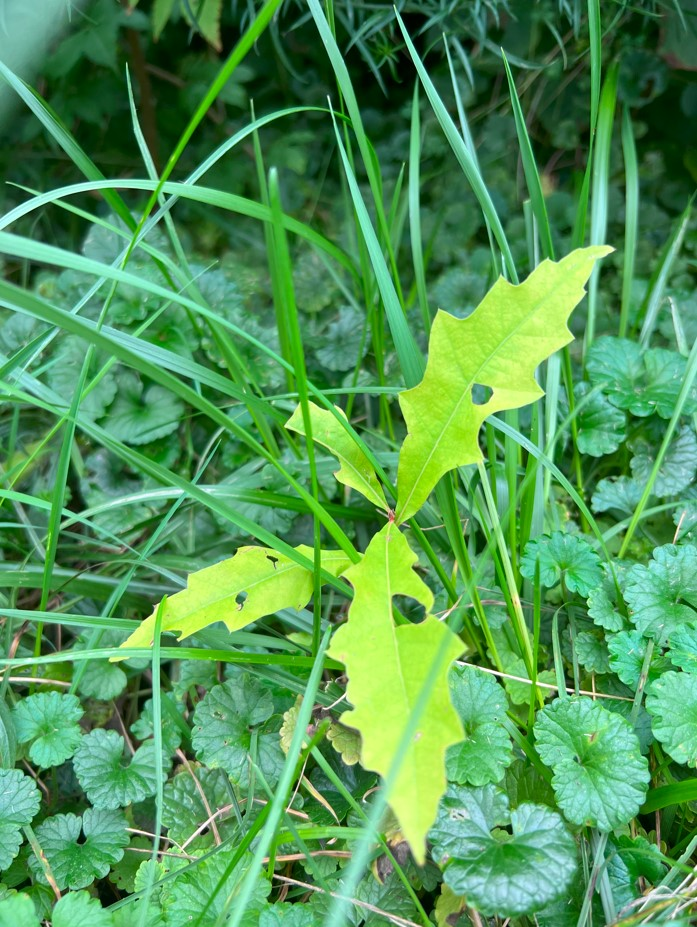
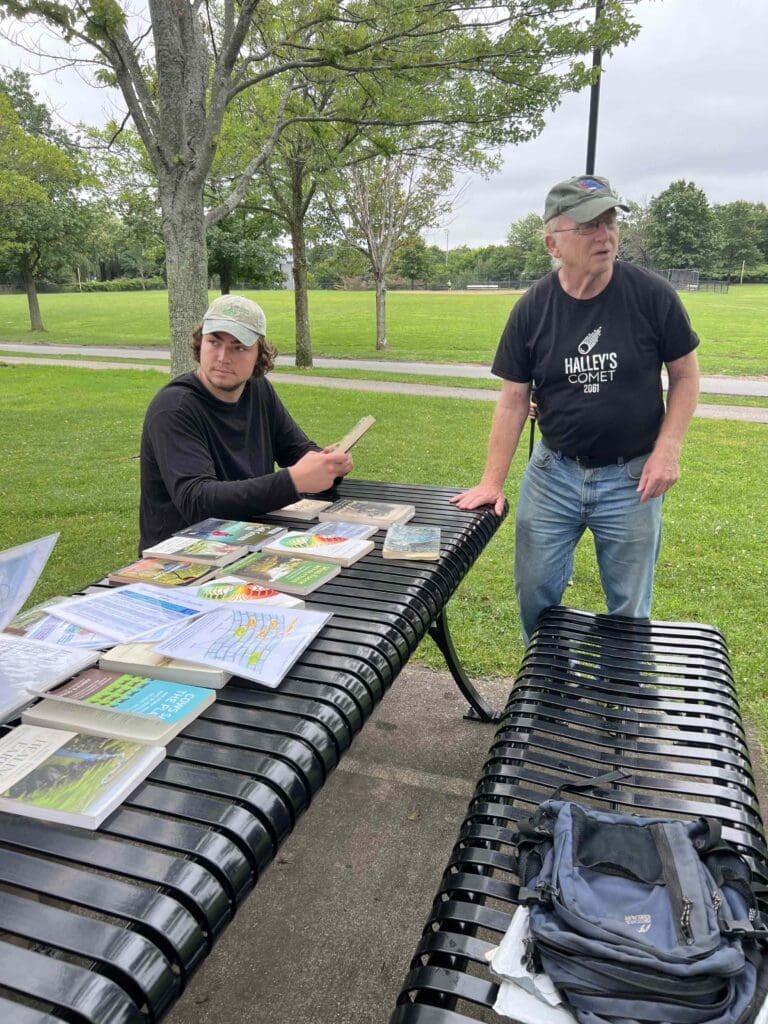
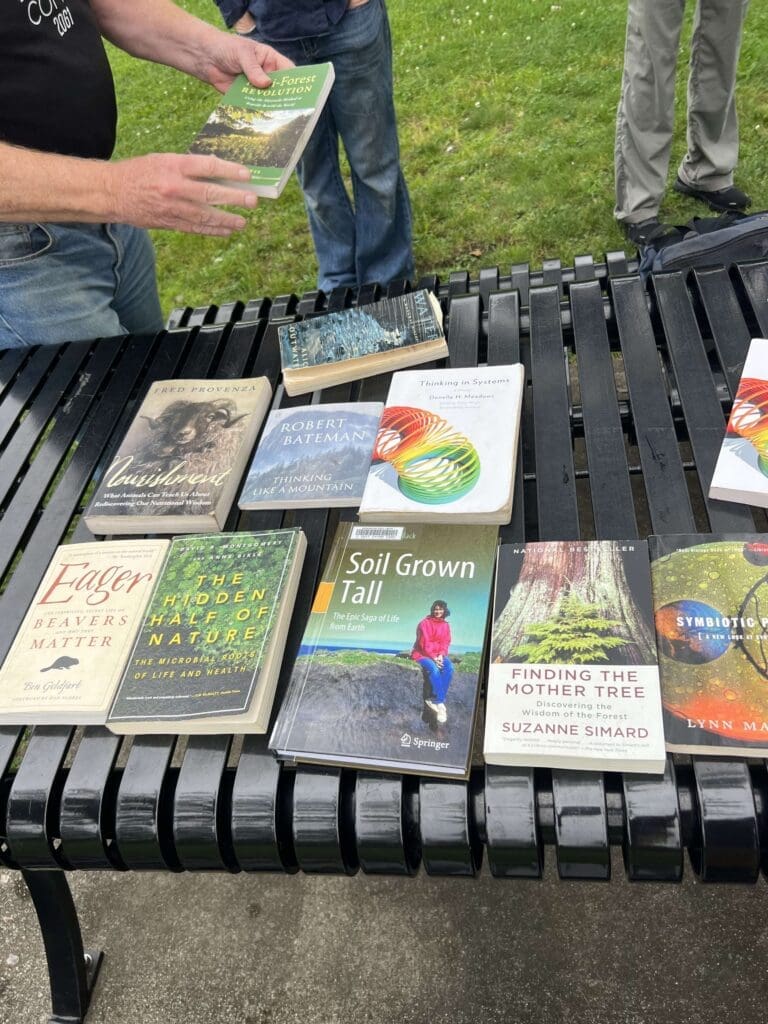
Jim shared his teaching tools with the group and gave away three of his favorite books
It was wonderful to gather with this group of eco-restoration enthusiasts who are working to seed their own communities with nature’s solutions. People came from across New England, many eager to get their own Miyawaki forest projects underway. This is how we develop our own mycelial network of regenerative energy.
Thank you to everyone who has helped us restore our shared spaces and bring back biodiversity. By volunteering on our planting days, spreading the word, or donating to our organization, you are contributing to the Mini Forest Revolution!
Learn more about our Miyawaki Forest program and how you can participate.
Our next gathering will take place on Sunday, September 3rd from 10 am to 2 pm. Sign up for our mailing list to get notified!

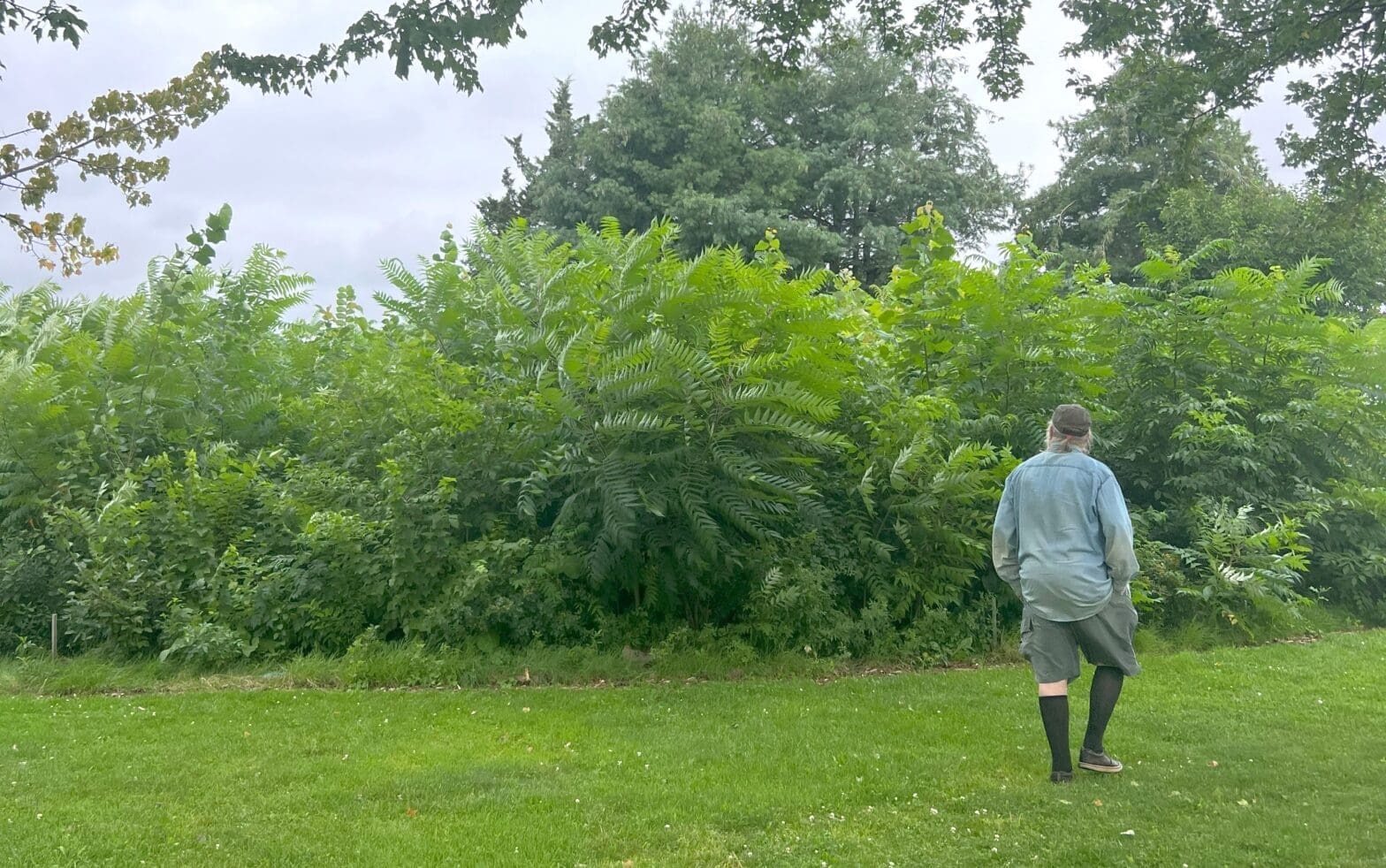
Can you please reference a scientific article describing the creation and 2 year growth of this miniforest in Cambridge, MA? For others in the northeast to copy this work, we need the details. Thank-you.
Hi Chris- thanks for your interest! Check out our Miyawaki page for a list of resources to help you on your DIY journey. https://bio4climate.org/miyawaki-forest-program/ The most comprehensive book on the subject is Hannah Lewis’ Mini-forest Revolution. If you type “Miyawaki” into this site’s search bar- you will find all the articles, videos and resources we have collected. We work with communities in the New England area to guide them in creating their own forests- but many people do take steps on their own. Keep in touch!